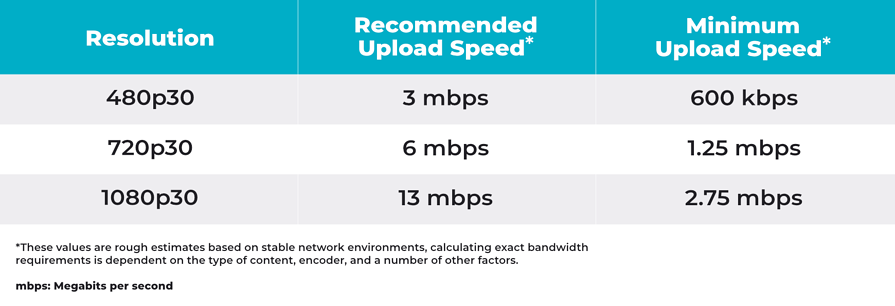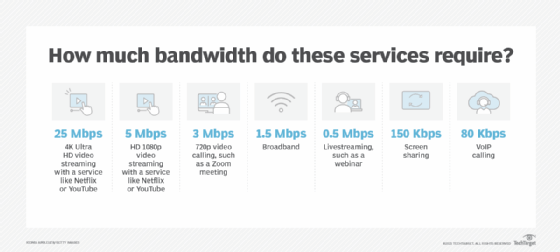Exploring the Relationship Between Megabits Per Second and Download Speeds
Exploring the Relationship Between Megabits Per Second and Download Speeds
Blog Article
Exactly How Megabits Per Second Influence Your Online Activities
The concept of megabits per second (Mbps) plays a pivotal function in shaping our on the internet experiences. As electronic tasks multiply, comprehending the ramifications of Mbps on video clip, streaming, and video gaming conferencing becomes progressively vital. Higher Mbps can boost performance and minimize disruptions, while poor rates may cultivate disappointment and inefficiency. Evaluating your family's certain needs in connection with these rates is essential, specifically as numerous devices try bandwidth. The nuances of just how Mbps affects different online tasks require additional exploration, specifically as our reliance on electronic connectivity proceeds to develop.
Recognizing Megabits Per Second
When considering internet speed, it's vital to comprehend the concept of megabits per second (Mbps), which works as a standard measurement for information transfer prices. This metric measures how much data can be transmitted over a net connection in one second, supplying a clear understanding of performance capacities - Megabits Per Second. For context, one megabit amounts to one million little bits, and Mbps is commonly utilized to reveal data transfer for different online activities
A greater Mbps suggests a much faster internet connection, allowing customers to perform jobs such as downloading documents, surfing internet sites, and engaging in online video gaming more effectively. For example, typical surfing needs around 1-5 Mbps, while streaming high-def video clip might demand 5-25 Mbps. Comprehending these requirements is essential for establishing the suitable web rate needed for details tasks.
Additionally, the variety of devices attached to a network can impact general performance. Multiple customers streaming, gaming, or downloading all at once can stress offered transmission capacity, causing slower speeds - Megabits Per Second. Assessing individual online routines and needs is important in choosing a web strategy that aligns with one's needs, guaranteeing a smooth electronic experience
Streaming and Buffering Issues
Streaming high-definition content has come to be a staple of contemporary on the internet amusement, yet it is typically come with by discouraging buffering concerns. These disturbances can dramatically take away from the checking out experience, bring about frustration and possible loss of target market interaction. Buffering happens when the information transmitted from the streaming solution is not obtained quickly sufficient to preserve a smooth playback, commonly because of inadequate internet rate measured in megabits per second (Mbps)

Additionally, real-time streaming can be affected by network blockage, which happens when several gadgets share the exact same data transfer. Subsequently, enhancing link speed and making sure ample Mbps is essential for a seamless streaming experience. As streaming services remain to evolve, recognizing the effect of Mbps on buffering concerns continues to be crucial for consumers looking for undisturbed entertainment.
Online Pc Gaming Efficiency
The effect of internet rate on online activities extends past streaming, considerably influencing on-line video gaming performance. In competitive video gaming, low latency and high data transfer are crucial for a seamless experience. A rapid connection decreases lag, permitting players to respond quickly to in-game occasions, which can be the difference between victory and defeat.
Transmission capacity, gauged in megabits per second (Mbps), plays a vital duty in sustaining multiple devices and video gaming systems at the same time. Not enough data transfer can lead to went down connections or minimized video game top quality, adversely affecting gameplay. For circumstances, online multiplayer video games call for significant data transfer, especially throughout peak video gaming hours when countless players are online.
Busy first-person shooters require higher rates to preserve responsiveness, while turn-based approach video games may function moderately well on reduced speeds. As on-line gaming continues to develop, with boosting visual fidelity and even more complicated multiplayer atmospheres, the need for higher Mbps will only intensify.
Video Clip Conferencing Quality
In today's electronic landscape, video conferencing top quality is greatly influenced by internet speed, especially in regards to bandwidth and latency. Top quality video clip calls call for sufficient data transfer to transfer audio and video data seamlessly. Typically, a minimum of 1.5 Mbps upload and download rates is advised for typical interpretation video, while high-definition video clip conferencing typically requires at the very least 3 Mbps.
Latency, or the hold-up in between sending out and getting information, also plays an important function in the individual experience. Higher latency can lead to echo, lag, and disjointed interactions, which can hinder collaboration and engagement during meetings.
Moreover, numerous individuals in a video clip meeting can strain offered transmission capacity, requiring also higher rates. Network congestion, often brought on by simultaneous tasks like streaming or downloading, can further weaken video quality. Hence, for organizations relying upon video clip conferencing for remote partnership, understanding the connection between megabits per general and second communication high quality is essential for maintaining performance and enhancing online interactions.
Choosing the Right Internet Plan
Choosing a proper internet plan is my company critical for guaranteeing ideal efficiency in different on-line tasks, specifically in setups that require high data transfer, such as video check out this site clip conferencing and online video gaming. Megabits Per Second. When thinking about a web plan, it is important to assess both the speed and information allocation to match your details use requirements
For homes with multiple customers participating in simultaneous tasks, a plan providing higher megabits per second (Mbps) is suggested. Usually, a minimum of 25 Mbps is suitable for standard streaming and browsing, while strategies exceeding 100 Mbps are preferable for even more intensive jobs. In addition, think about the nature of your online activities; video clip conferencing needs at least 1.5 Mbps post rate, while online pc gaming may require a reduced latency however consistent link.
It is likewise essential to examine your data cap. Endless data strategies can avoid throttling and disruptions, especially if hefty usage is prepared for. Lastly, study company in your area, as schedule and prices can differ. By attentively picking a web strategy tailored to your demands, you can enhance your on the internet experience, ensuring smooth, undisturbed accessibility to your preferred tasks.
Verdict
Finally, the significance of megabits per second (Mbps) in shaping on the internet tasks can not be overemphasized. Greater Mbps helps with seamless streaming, minimizes buffering, improves video gaming experiences, and makes sure high-grade video clip conferencing. Conversely, poor transmission capacity can lead to frustrating interruptions and diminished efficiency throughout different tasks. A comprehensive understanding of individual or household Mbps needs is necessary for choosing an appropriate net strategy that sufficiently supports varied online activities and user needs.

Usually, a minimum of 25 Mbps is suitable for basic streaming and browsing, while strategies going beyond 100 Mbps are more effective for more intensive jobs. In addition, think about the nature of your online activities; video conferencing calls for at the very least 1.5 Mbps submit speed, while on-line video gaming may require a reduced latency click to find out more but consistent link.
Report this page